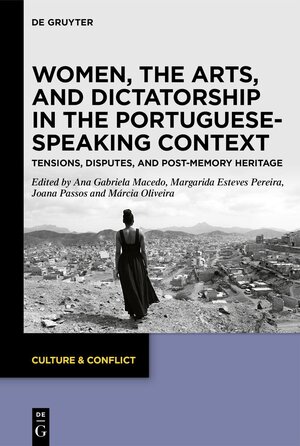
Women, the Arts, and Dictatorship in the Portuguese-Speaking Context
Tensions, Disputes, and Post-Memory Heritage
herausgegeben von Ana Gabriela Macedo, Margarida Esteves Pereira, Joana Passos und Márcia OliveiraThis book deals with the work of twentieth-century women artists and literary authors from Portugal, Brazil and Portuguese-speaking African countries against the backdrop of political dictatorships. The essays in this volume reflect upon and challenge canonical perspectives on the arts and literature, bringing to light some of the hidden and silenced faces of Lusophone culture. By doing so, they highlight how dominant ideologies marked the artistic and literary practices of Portuguese-speaking women, and how these women in turn developed strategies of resistance through their creative work. The volume brings together contributors working in a range of disciplines, including literary criticism, the visual arts, and film studies, all of whom reflect on themes such as the reactions of women artists to authoritarianism, the representations of political repression in their work, the colonial war, and the critical revision of this historical moment by a younger generation of artists. It addresses scholars, critics, students and cultural workers with an interest in post-colonial and feminist studies in the Portuguese-speaking context.




